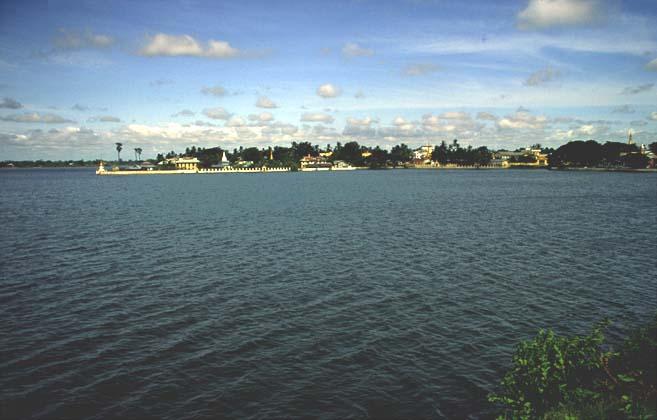Nexus linecards come with an integrated M series engine. The first generation for forwarding engine is referred to as M1 forwarding engine. M1 can deliver 60Mbbps of L2 and L3 IPv4 unicast forwarding. (30Mpps of IPv6) across all ports on a single linecard. 10-slot chassis with 8 M1 forwarding engines delivers up to 480 Mpps of IPv4 unicast forwarding. (Sup720 claims up to 400Mpps).
32 ports 10G card (N7K-M132XP-12)
Part number can be dissected as follows -
N7K - for Nexus 7000
M1 - forwarding engine
32 - number of ports
X - - port speed (in Roman ?)
P - ??
1 - fabric version
2 - number of fabric required for full bandwidth (w/o redundancy)
Each fabric connection is 40Gpbs (dCEF720 has 20Gbps) with maximum of 2 fabric connectors. N7K-M132XP-12 has 2 fabric connections (i.e 80Gbps bandwidth to fabric) and makes it 4:1 oversubscription for a fully populated line card. The card can be run in non-oversubscribed mode by dedicating fabric access to 1 port in each port block. First port in each port block of 4 will become dedicated port - port 1,2,9,10,17,18,24,25.
"rate-mode dedicated" interface command is used to make the first port in port group in dedicated mode - the rest of the ports in port block are disabled.
48 ports 1G card (N7K-M148GS-11 or N7K-M148GT-11)
N7K - for Nexus 7000
M1 - forwarding engine
48 - number of ports
G - - port speed (in Roman ?)
S/T - S for SFP and T for copper ?
1 - fabric version
1 - number of fabric required for full bandwidth (w/o redundancy)
48 ports linecard has 40Gbps fabric access and thus it is 1:1.2 oversubscribed.
Monday, May 25, 2009
Subscribe to:
Post Comments (Atom)

Post a Comment